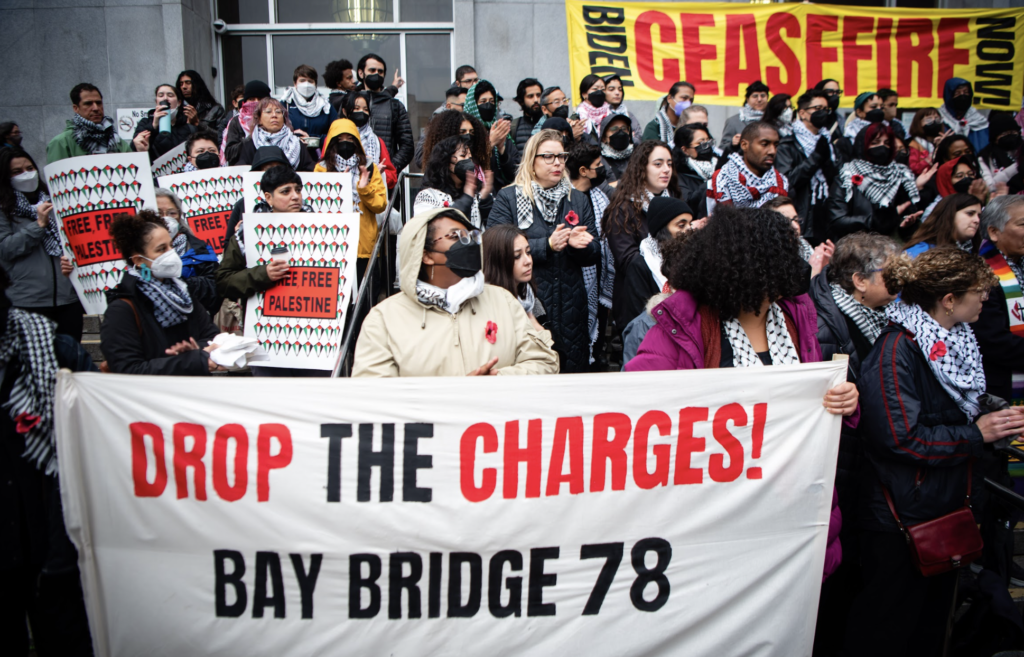In a highly unusual move that could easily backfire, District Attorney Brooke Jenkins is charging 80 protesters who she says stopped traffic on the Bay Bridge with potentially serious crimes.
Among the charges are False Imprisonment, which I have never seen in a civil disobedience protest.
In fact, I’ve been covering CD protests (and way back in the day, participating in them) for more than 40 years, and it’s hard to remember any time when nonviolent activists went to trial on these types of charges.
“It’s the first time in a long time that I’ve seen such a large group charged on one complaint like this,” Rachel Lederman, senior counsel at the Center for Protest Law and Litigation, told me.

Lederman, who is lead counsel for the defendants, said that most peaceful protest cases are eventually dropped or dismissed, because “we defend these very vigorously.” And most San Francisco district attorneys over the years have understood that.
“But Brooke Jenkins doesn’t have this history,” Lederman said.
The protest, in support of a Gaza ceasefire, was disruptive; drivers were stuck on the bridge for hours. That, of course, is the point of a civil disobedience action—to block business as usual.
As a political tactic, it’s controversial (and I say this as someone who has participated in traffic-blocking CD in the past, the distant past). There are no doubt a lot of people who would normally agree with the protesters who were furious about four-hour delays getting to work, or to pick up kids, or to medical appointments, or whatever.
People also said that about Critical Mass, the somewhat anarchic bicycle ride that interfered with car traffic the last Friday of every month in SF for many years. It’s now seen as an important part of local history and a factor in the city’s moves to make San Francisco a more bike-friendly place.
But those are questions of political tactics. This is now a matter of law—and I don’t see how Jenkins, who is already clogging the courts with drug cases, is going to make it work.
Supporters of the protesters showed up in large numbers at Superior Court this morning to show solidarity with the first group getting arraigned. Other groups are spread out through the rest of the week, so the actions are scheduled to continue all week long.
Judge Vedica Puri, who is handling the first stages of the case, moved the cases today until Feb. 1, and lawyers expect the remainder will be moved to Fed. 1 or 2.
And then what? Put 80 people, some of whom, the activists say, were bystanders dragged from their cars by police, on trial, individually, or together?
“This is ridiculous,” Lederman said. “To charge people with false imprisonment for a protest?”
Every person charged in the protest has the right to a lawyer. Some may be represented by the Public Defenders Office. Some may ask for the court to appoint private counsel, since the PD’s Office can have conflicts representing multiple defendants in the same case—and that will not only be expensive for the city, but might not be realistic.
And since they are all named on one complaint, does the DA expect some sort of mass trial, which we haven’t seen in decades?
Does Jenkins think a San Francisco jury will convict folks of false imprisonment for civil disobedience?
My guess: Jenkins will have to drop the vast majority of the charges, or dismiss the cases entirely. Which means this was all a huge waste of everyone’s time and money.





